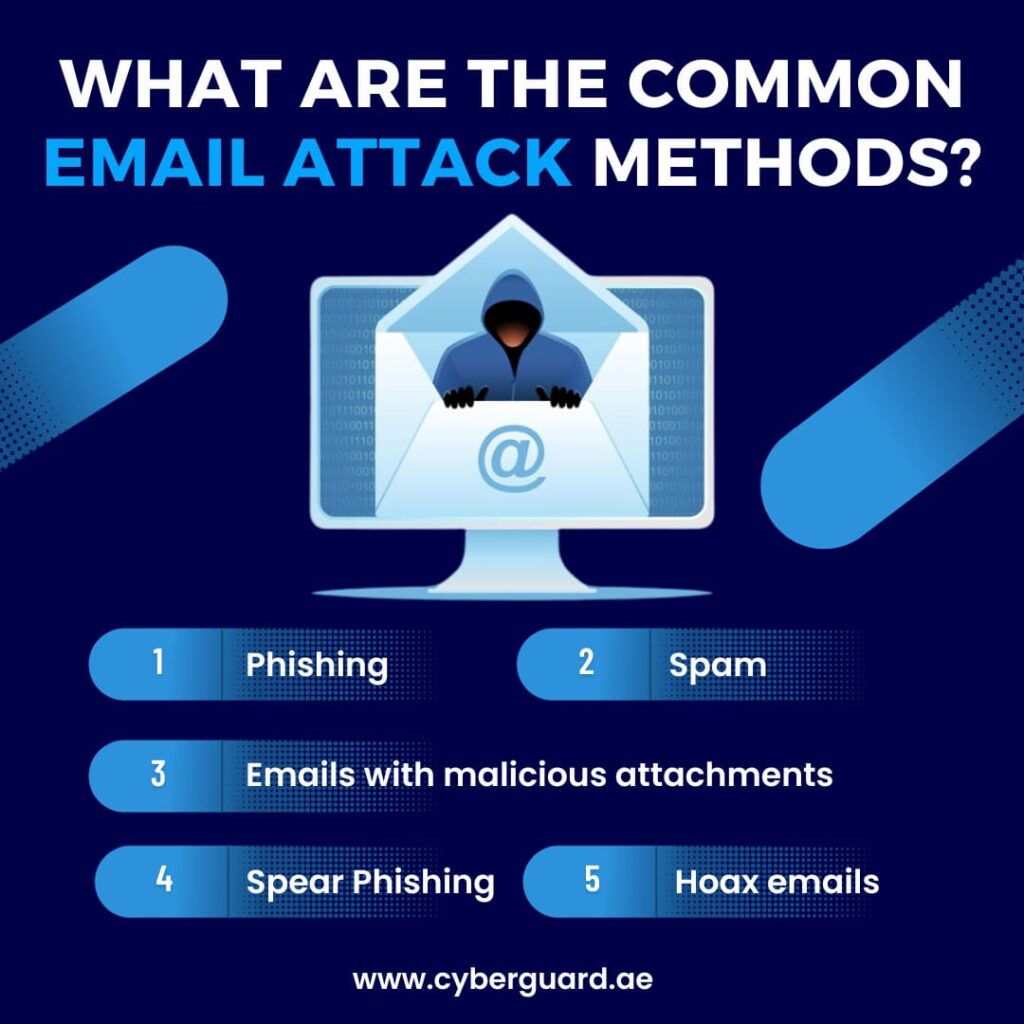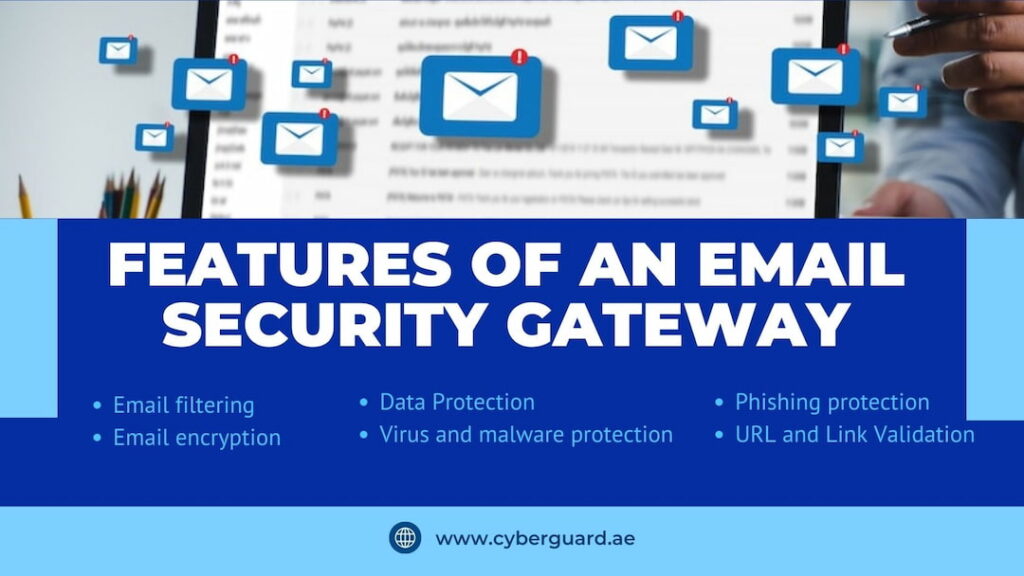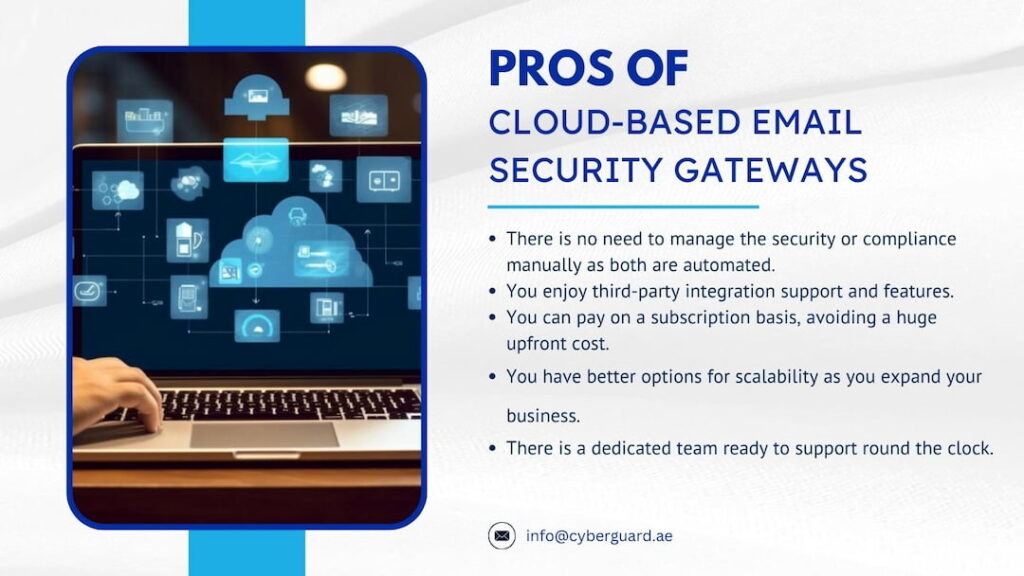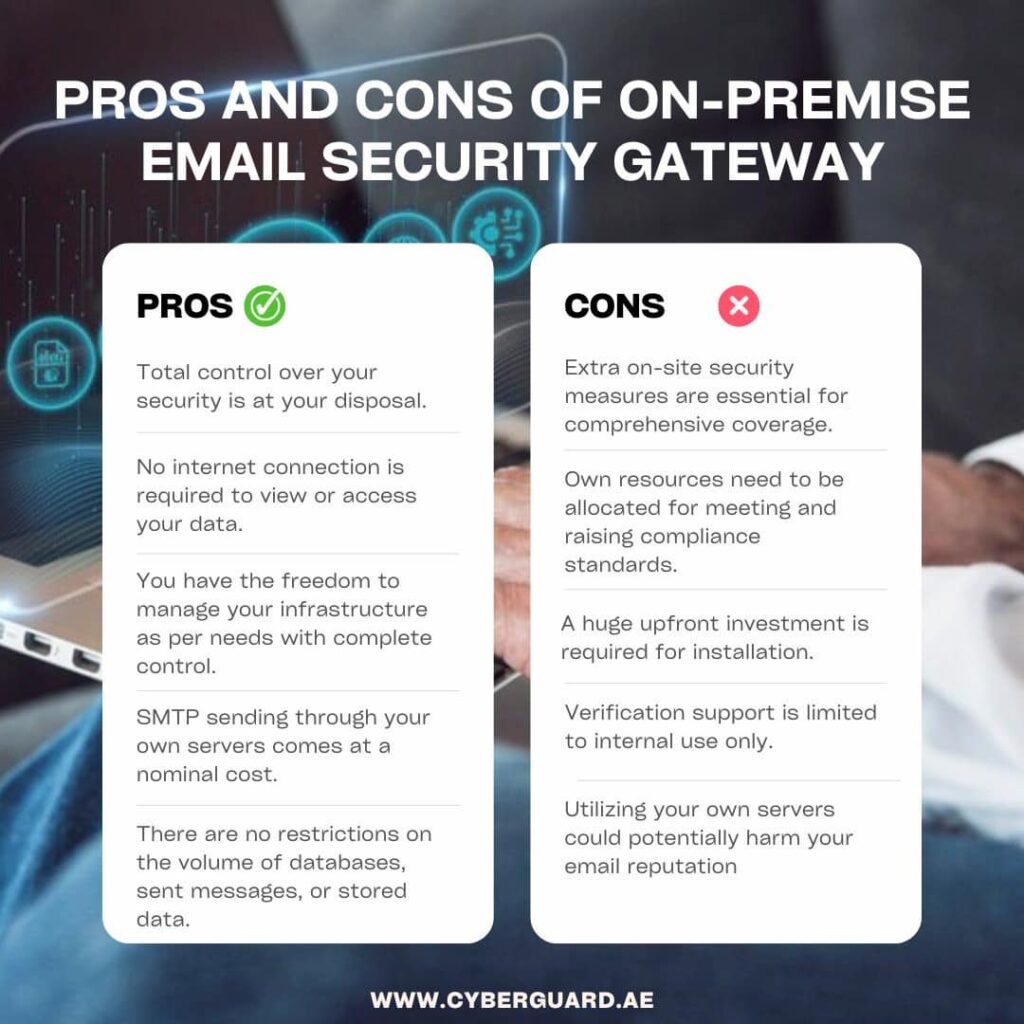Email communication constitutes the majority of the internal and external communications within companies. From highly sensitive to not-so-sensitive information, a large chunk of data is transferred during such interactions. Are these chunks of data secured? Does it get leaked to unintended hands? These are some questions that people have always wondered. Like any other digital solutions, emails too are susceptible to attacks. But email security gateway offers an additional layer of safety and encryption, stopping data loss.
What is an Email Security Gateway?
An email security gateway, also known as Secure Email Gateway (SEG) is an advanced email security solution designed to manage email communications and prevent unauthorized alterations to emails. The main component of this security product is a mail server which has been designed to filter all incoming and outgoing emails. It screens and intercepts emails that contain potential threats, ensuring that no such emails reach the internal mail server of the organization.
What Is the Significance of Email Security Gateways?
When it comes to cyber threats within the corporate landscape, email attacks like phishing are the most frequently reported ones. Attackers send phishing emails to the employees, who inadvertently open them causing infection of malware in the systems and consequently theft of highly sensitive data. With the help of a single compromised corporate email account, attackers can get a full list of registered emails under a certain corporate domain and risk crucial corporate data. In this context, it is highly significant to have an additional layer of protection for emails. Email security gateway offers the best safety mechanism.
What Are the Common Email Attack Methods?

Phishing
Spam
It is estimated that businesses lose about $20 billion a year on spam incidents. Spams are unsolicited emails flooding inboxes. Spams contain infected files or links to unsecured websites which contain malware.
Emails with malicious attachments
Occasionally, attackers send emails containing attachments, such as PDFs, Word documents, or other file formats. These attachments may include embedded scripts or macros that, when the files are opened, can lead to unauthorized data disclosure.
Spear Phishing:
As the name indicates, these are targeted phishing attempts where the attacker researches an individual or an organization, collects crucial information and composes a personalized email. The recipient seldom suspects the intention.
Hoax emails
Hoax emails are emails with false information, for instance, warning you that your account has been compromised and alerting you to take instant action by clicking the link given. The link will lead you to a malicious website which could steal your data. Common hoax email strategies include fake security warnings, dating scams, lottery scams and charity scams.
What Are the Typical Features of an Email Security Gateway?
Standard services from reputed email security gateway vendors will provide you with a number of security features such as:

Email filtering
This feature ensures that only safe emails arrive at the internal server of the organization. It means before the email reaches the destination, it undergoes security screening and only if found safe is allowed to pass to the next stage.
Email encryption
Email encryption is a process where the content of the email is encoded to protect it from being accessed by unintended parties. It is a basic feature that the email security gateway offers.
Data Protection
Email security gateway offers data protection by deploying Data Loss Prevention (DLP). Organizations can describe the type of data being sent or received through their email servers. The emails that do not comply with these descriptions are blocked to prevent data loss.
Virus and malware protection
Advanced email security gateways come built with the option to scan email attachments and links that contain or lead to malware and viruses in order to prevent the spread of them via emails.
Phishing protection
By using various advanced mechanisms like machine learning, pattern recognition and blacklisting, email security gateway offers the benefit of identifying and blocking phishing emails. Phishing emails are those emails that trick recipients into believing that they come from trusted people or organizations.
URL and Link validation
Top email gateways validate URLs and links within emails. This ensures that recipients don’t receive emails containing links or URLs directing them to suspicious destinations, leading to the compromise of their accounts.
How Does Email Security Gateway Work and Safeguard Users?
In an organization’s cybersecurity landscape, the email security gateway plays a crucial role. It works through a series of steps while safeguarding users’ email communication. The key steps or processes involved in the process include:
Incoming and outgoing email scanning
Email security gateway acts as the middle ground between the internet and the email server of the organization where it has been deployed. All incoming or outgoing emails passing through this email gateway are scanned for suspicious content. Any email that contains threats like viruses or spam is detected and blocked. Regarding outgoing email scanning, it provides alerts in cases where outgoing emails are directed to unusual recipients or include sensitive information.
Email Quarantining
In the process of email scanning, any incoming or outgoing emails that carry sensitive information are promptly blocked and quarantined, moving them to a different folder. The organization’s IT support team can subsequently assess these emails and, if they are found to be harmless, can allow them to be forwarded to the intended recipients.
Email Logging
Advanced email gateways maintain comprehensive logs of all scanned emails, ensuring a record for future reference. This broadens the IT support team’s options to monitor both outgoing and incoming emails. In the event of a potential threat down the road, these logs can serve as a valuable resource for identifying the origins of any security concerns..
From Start to End – The Working Mechanism of Email Gateway:
The working mechanism of the email security gateway is gradual and step-by-step. It gets triggered into action when an organization’s email server receives an email.
Here are the steps from start to end.
- The email gateway springs into action upon an email’s arrival at the organization’s email server.
- The incoming email scanning feature meticulously checks the email for any potentially suspicious content.
- Emails flagged for malicious content are promptly isolated and moved to a designated folder.
- Emails that pass the security check are allowed to proceed to the recipient’s inbox.
- The recipient receives and reads the email, marking the end of the process.
Cloud Vs On-Premises Email Security Gateways – Which Holds the Upper Hand?
When it comes to choosing an email security gateway, you have two choices – cloud or on-premise. There are arguments favouring one over the other for both infrastructures. So, how do you choose one? Well, it depends on your unique requirements and figuring out what salient features of one or other make your email ecosystem more secure. Take a look at the pros and cons of both and decide for yourself.
Pros and Cons of Cloud-based Email Security Gateways

Pros
- There is no need to manage the security or compliance manually as both are automated.
- You enjoy third-party integration support and features.
- You can pay on a subscription basis, avoiding a huge upfront cost.
- You have better options for scalability as you expand your business.
- There is a dedicated team ready to support round the clock.
Cons
- You may face downtime issues due to internet and server speed fluctuations.
- Understanding the pricing structure may seem complex.
- You have limited control over modifying the security features or settings.
- It doesn’t provide an equivalent level of security as on-premises solutions
- You will have to increase the bandwidth to support the infrastructure.
Pros and Cons of On-premise Email Security Gateway

Pros
- Total control over your security is at your disposal.
- No internet connection is required to view or access your data.
- You have the freedom to manage your infrastructure as per needs with complete control.
- SMTP sending through your own servers comes at a nominal cost.
- There are no restrictions on the volume of databases, sent messages, or stored data.
Cons
- Extra on-site security measures are essential for comprehensive coverage.
- Own resources need to be allocated for meeting and raising compliance standards.
- A huge upfront investment is required for installation.
- Verification support is limited to internal use only.
- Utilizing your own servers could potentially harm your email reputation
In short, the decision to choose between an on-premises and cloud-based email security gateway comes down to your specific needs and use-case scenario. Both options come with its own advantages and disadvantages. Therefore, it is not possible to give a one-size-fits-all answer. It’s important to carefully assess your security priorities, requirements, budget and the available IT resources and infrastructure before making a decision.
Top 10 Email Security Gateways
Libraesva Email Security Gateway
Libraesva email security gateway is a highly sophisticated cloud email gateway which offers comprehensive and exceptional email security for business communications. From blocking threats to thwarting phishing, it handles all types of potential threats you are likely to confront these days. The motto of the company is to provide a safe environment for people to communicate.
Sophos Email Security
Sophos Email Security comes with a variety of features such as spam filtering, data protection, virus scanning, phishing protection and more. It is a software as a service (SaaS) product which is easy to start using and manage. The variety of pricing options that it offers makes it a compelling choice.
Microsoft Email Security Gateway
Microsoft Email Security Gateway is a cloud-based email gateway which is used in the Microsoft Azure environment. It allows the scanning of emails for potential threats. It also screens outbound emails from Exchange Online for sensitive data and passes, blocks or encrypts the content based on customized settings.
Cisco Secure Email Gateway
Cisco offers comprehensive defense coverage for corporate email servers. The developers claim to have updated mechanisms to thwart a wide range of most damaging threats such as phishing, malware and spam. A key feature that it offers is the customization option for admins to create rules for outbound emails and data sharing.
Mimecast Secure Email Gateway
Mimecast Secure Email Gateway is a reputed cloud email security gateway offering support for both Google Workspace and Microsoft 365. It promises ongoing updating of its databases for the latest threats and the solutions to thwart them. The company claims to offer a single email cloud platform for quick and user-friendly handling.
FireEye Email Security
FireEye Email Security is an enterprise-level email protection service catering to small-medium and large businesses. It claims to offer advanced-level protection against attackers that advance through multi-level attacks. It updates its database daily, making itself immune to the latest attacker tactics.
Forcepoint
Forcepoint is one of the leading email gateway vendors that prioritize industry solutions. It offers maximum control over communications by providing users with end-to-end encryption and support for data passing through systems. From mobile to systems, it optimizes the encryption of sensitive emails and attachments and the prevention of suspicious content.
ESET
ESET is one of the best email gateway providers for small businesses. It offers comprehensive support for all devices of all sizes. Some of the key features it offers include banking and payment protection, multilayered proactive protection and anti-phishing protection. It offers three subscription plans – one for home office and two for growing businesses.
Trend Micro
Trend Micro offers advanced protection from attacks by deploying a combination of advanced techniques including that of cross-generational. It comes with layered protection guards to safeguard your emails and content from persistent attacks by ransomware. The subscription plans offered by Trend Micros are highly flexible for businesses to customize for their needs.
Virtrue
Virtrue offers controlled access to your critical information shared via various channels such as apps, emails and files. While Microsoft 365 and Google Workspace remain the top platforms where the gateway works to perfection, there is also an array of SaaS applications that are supported by its smooth flow of data with encryption
What Are the Advantages and Limitations of Email Security Gateways?
Advantages
Handles email-borne threats effectively
There are several types of email-based threats that people confront on a daily basis. This includes spam, phishing, malware, and viruses. Email Gateway handles all of these threats.
Reduces data breaches
Studies indicate that the majority of the data breaches originate from compromised email accounts. By effectively blocking hoax emails that trick users, gateways minimize the risks of data breaches
Improves overall emailing experience
Opening a computer each day and seeing the inbox flooded with spam can worsen the overall emailing experience. Email gateways move suspicious emails to a designated folder and improve your emailing experience.
Maximizes productivity
By using a secure email gateway, your employees won’t have to deal with thousands of unwanted messages filtering through them. Instead, they can focus more on their scheduled tasks, maximizing organizational productivity.
Comes with flexible options
Depending on your company’s needs, nature, resources and other factors, you can decide on what type of email gateway needs to be used – on-premise or cloud-based. Among them too, there are numerous options.
Limitation
Costly for small businesses
For small businesses and start-ups, having to invest in an email security gateway for safety purposes is an additional expenditure, even though cloud-based gateways do not cost a huge upfront.
Result in occasional latency
When you deploy an email security gateway, you may experience occasional latency issues with the delivery of some emails due to the incoming and outgoing email screening, affecting the company’s operations
Not a comprehensive solution
It is not possible to count email security gateway as a comprehensive solution against data breaches. It only protects against data loss resulting from email-born threats. You will have to depend on other solutions for other types of data losses.
Require human monitoring
You cannot rely on an email gateway to filter out all your emails. Sometimes it requires human interventions in order not to prevent legitimate emails from getting filtered out as false positives.
May leave out sophisticated attacks
Not all email gateways handle sophisticated attacks. Additional precautions might be necessary, or you may want to consider switching to service providers that provide more advanced assistance.
Is A Secure Email Gateway Alone Sufficient for Ensuring Complete Data Protection?
While you have a great length of coverage from data loss through a secure email security gateway, it cannot be considered a comprehensive option for all types of data losses. The comparison of the advantages and limitations discussed above would give you a fair picture of what to expect and not to expect.
Hence, the best advice to give in this context is to use an email gateway in tandem with other security options such as a firewall and antivirus program. Adopting the best cyber hygiene practices is another great way to maximize the effectiveness of your security efforts.
Conclusion
In summary, Secure Email Security Gateways are valuable instruments for establishing robust security and peace of mind in corporate email communication. Given the inevitability of emails in corporate interactions, the most practical approach is to take every possible step to safeguard against data loss. Email gateway comes at the forefront of this effort.
When implementing SEGs, it’s crucial to remain open to integrating additional security measures to improve the efficiency and success rate. We hope this blog helped you improve your overall understanding of the concept of email gateway. Feel free to write your queries in the comments.


